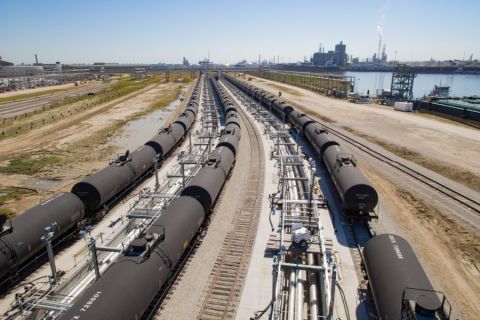From the state of production-sharing agreements and taxation to pipeline-access rules, many questions remain. The Russian-American energy summit in Houston last November confirmed the central position of Russia's oil industry in the global energy picture and the willingness of the world's major oil companies to invest in Russian oil and gas projects. But although Russians may argue otherwise, it still looks clear that without foreign investment-and its associated high levels of technology-mega-projects cannot be realized. Yet, before committing to such investments, oil and gas investors require guarantees, particularly in a country that has only recently shown any economic soundness and political stability. There is general consensus among multinationals that the subsoil law governing the majority of oil and gas activities in Russia does not provide a sufficient legal foundation for large green-field exploration and production projects. The only way to provide such guarantees is via production sharing agreements (PSAs) between the Russian state and investors. Creating a solid legal base for PSAs is a priority with President Putin but as of today, the international oil and gas community is still waiting to see his stated intentions translated into solid facts. A number of major projects, onshore and offshore, have been delayed pending legislative change. A number of others could be unleashed if adequate steps are taken, the accumulated value of which is estimated from $65- to $100 billion during the next eight to 10 years. The investment effort To date, three PSA investments are under way, including the two eastern projects of Sakhalin I and II and the Khariaga project in the northern Nenetsky Autonomous district. These projects, now at the production stage, were signed prior to the promulgation of the existing PSA law, which dates from January 1996. This law has not been deemed satisfactory and only one project was signed in the seven years following its implementation. To benefit from the PSA law, projects over 25 million tons of crude and 250 billion cubic meters of gas have to be included in an official list included in the subsoil law. To date, 28 projects for hydrocarbon development have been included in the list by government decree, while other projects are still being negotiated. Sakhalin III was, for instance, agreed upon in 1993 but is still waiting for the proper legislative move. The most serious roadblock to new investments has been PSA taxation-there is still no specific PSA chapter in the tax code. The government had at first made a move that destroyed all tax benefits expected by any investor under a PSA regime. The Duma reacted by putting forward a series of amendments and this long-awaited PSA chapter should be adopted soon. Looking at the latest work of Duma deputies and the moves expected by the oil and gas investment community, it could, or should contain these changes: • A set list of taxes and charges should be established for PSAs and should then remain unchanged. • The principle of full recovery of capital investment should apply under the renewed PSA regime. • Depreciation and uplift should be excluded from recovery costs. • A mechanism ensuring tax stability to PSA investors should be drafted, whereby any changes in the Russian Federation's tax regime further to the signature of the agreement should be compensated. Further, a framework for governing the payment of royalties should be established, instead of production taxes as have been applied in the Russian Federation since January 2002, when the excise tax, the payment of royalty and the charge for replacement of the raw materials base were replaced by a unified tax based on production levels. The proposed reform PSA has its critics, mainly from domestic oil companies. Yukos chief executive officer Mikhail Khodorkovskiy leads the resistance. He has called the PSAs detrimental to the country, and argued that foreign investors should work under the same tax regime applicable to domestic oil companies. He also argues that PSAs should be the exception rather than the norm: "We propose a two-step process. When a field is proposed for development, there should be an auction process with the development scheme based on the national taxation regime. If no developer is found and the government still deems it necessary to develop the field, then it should declare what privileges will be granted from the national taxation regime, and should commit to sign a PSA with any eventual participant. After that, the auction on PSA terms must be announced, openly and publicly." Subsoil law, pipeline rules Proposed law on underground resources was presented by the Ministry of Natural Resources last June, but a number of elements are not considered satisfactory enough to provide security to PSA investors. Under the proposed code, the government reserves the right to identify the list of strategically important minerals, with a preferential right to buy such materials. This could interfere with the rights to subsoil areas conferred by the license delivered with a PSA. It is therefore necessary to establish mechanisms where the investor will be guaranteed unconditional rights on the use of a subsoil area and the "strategically important minerals" it contains. Access to pipeline capacity is one of the most acute points of controversy for the oil and gas industry in Russia. The mineral resources code and the law on natural monopolies have established the principle of fair access to the trunk pipelines for users of underground resources, as well as regulating tariffs. It guarantees access to the Transneft system, but the law is ambiguous. According to Charles Keefe, senior partner at law firm Coudert Brothers, "As currently drafted, these laws present an unacceptably high risk of government interference in ways that would make pipeline projects not economically viable. Thus PSA projects with significant pipeline infrastructure components, which include most PSA projects, cannot go forward until those laws are amended." The appetite for reform is pervasive. Says Brian l. Zimbler, senior partner at law firm LeBoeuf, Lamb, Greene and MacRae: "There is gradual improvement in the legislation. Although delays are occurring in the PSA law, the subsoil law is being reformed, as is the civil code, procedural code, and we are now entering the drafting process of a third version of the bankruptcy law. "Nevertheless, the situation is getting worse in some instances, due to the lack of sophistication of Russian justice courts and we are worried by recent developments that demonstrate the unwillingness of these courts to refer disputes involving foreign investors to international arbitration."
Recommended Reading
Targa Expects Another Major Permian Pipeline Project This Year
2024-05-03 - Targa Resources says different projects are falling in place for gas capacity expansion
US Appeals Court Upholds FERC Approvals for Gas Pipeline Expansion
2024-05-02 - A unanimous three-judge panel of the U.S. Circuit Court of Appeals for the D.C. Circuit held that the Federal Energy Regulatory Commission was right to determine the Evangeline Pass Expansion project is functionally separate from four related gas infrastructure developments.
Enterprise Targets FID for SPOT Project by End of 2024
2024-05-01 - Enterprise Products Partners’ co-CEO disputed capex figures reported in the media regarding its Sea Port Oil Export Terminal.
US Reforms Green Law to Speed Clean Energy, Infrastructure Permits
2024-04-30 - The reforms are the second and final phase of adjustments to the National Environmental Policy Act, or NEPA, by the Biden administration.
Canadian Railway Companies Brace for Strike
2024-04-25 - A service disruption caused by a strike in May could delay freight deliveries of petrochemicals.



